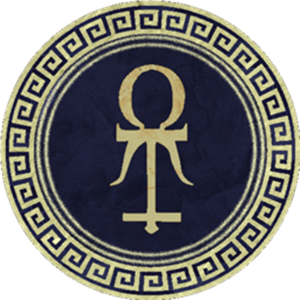Task Force Nicator
| Task Force Nicator Task Force 58 | |
|---|---|
 | |
| Commanders | |
| Task Force Commander | Chang Gwan-mook |
The Allied Joint Special Operations Task Force 58 - Nicator, shorthand names Task Force 58 and Task Force Nicator, was a military task force comprised of special operations units from the five major countries of the Allied High Council, also nicknamed the Neocon Five: Quenmin, Joyonghea, Bethausia, Concordia and the Soryu and the Holy Trabian Empire. Scientists, hackers, and archaeologists were also employed in the Task Force for assistance. Their primary objectives were to retrieve all of the Royal Artifacts of the Seleucid Empire and its related manuscripts and documents, and eliminate opposing units tasked with sharing the same goal, prominently the 16th SS Paranormal Regiment Seleucia, Task Force 141 and Task Force 219, in order for the Council to be advantageous during the Chalcedonic War and the Neocon War. During the conflicts, they were able to secure a number of artifacts and weapons, but were handed over to the forces of the Heimdallr Council at the end of the Neocon War.
History
During the start of the Chalcedonic War, word reached the intelligence agencies of the Neocon Five that the East Europans managed to discover the manuscripts of the Apocryphon Presbos Seleucidon relating to the Seal, Amulet and Makhaira of Cassander Tryphon, and the Valkyrian Spear of Eurycleia Soteira. Consequently, the governments of the Neocon Five sent memorandums to their respective military commands that commissioned them to form an international special operations force to research and retrieve the discovered artifacts and manuscripts. Another significant factor was the Heimdallr Council eying the same material, which roused suspicions among the neoconservative governments of their attempted countermeasure in using them against them.
Chalcedonic War
Neocon War
Formation
- Task Force 58 - Nicator
- TF Black – Elements of the 6th Concordian Special Forces Group, Teugbudae Unit 3, Chienphi Unit Seven, FOSA Unité 1, East Europa-West Lorica area
- TF Orange – Squadron of Eunjagbun Unit 3 and small elements from Chienphi Unit Seven and Tatmadaw Special Operations Force 10, Hecatompylos-Kandahar-Bactra-West Tibetia area
- TF Blue – Squadron of SEAL Team 5, elements of the 12th Concordian Special Forces Group, and a small element from Nước Đặc Group 2, Mesopotamia-Persianna area
- TF Red – Elements of SEAL Team 3, Eunjagbun Unit 2, Teugbudae Naval Unit 5, and Nước Đặc Group 1 Pergamon-Ramuncia-Militesi-Cyprus area
- TF Green – Squadrons of Chienphi Unit Seven, Eunjagbun Unit 1, SEAL Team 8, FOSA Unité 4, and a small element of Tatmadaw Special Operations Force 6, East Lorica-East Tibetia area
- TF Cyan - Detachments of various intelligence agencies